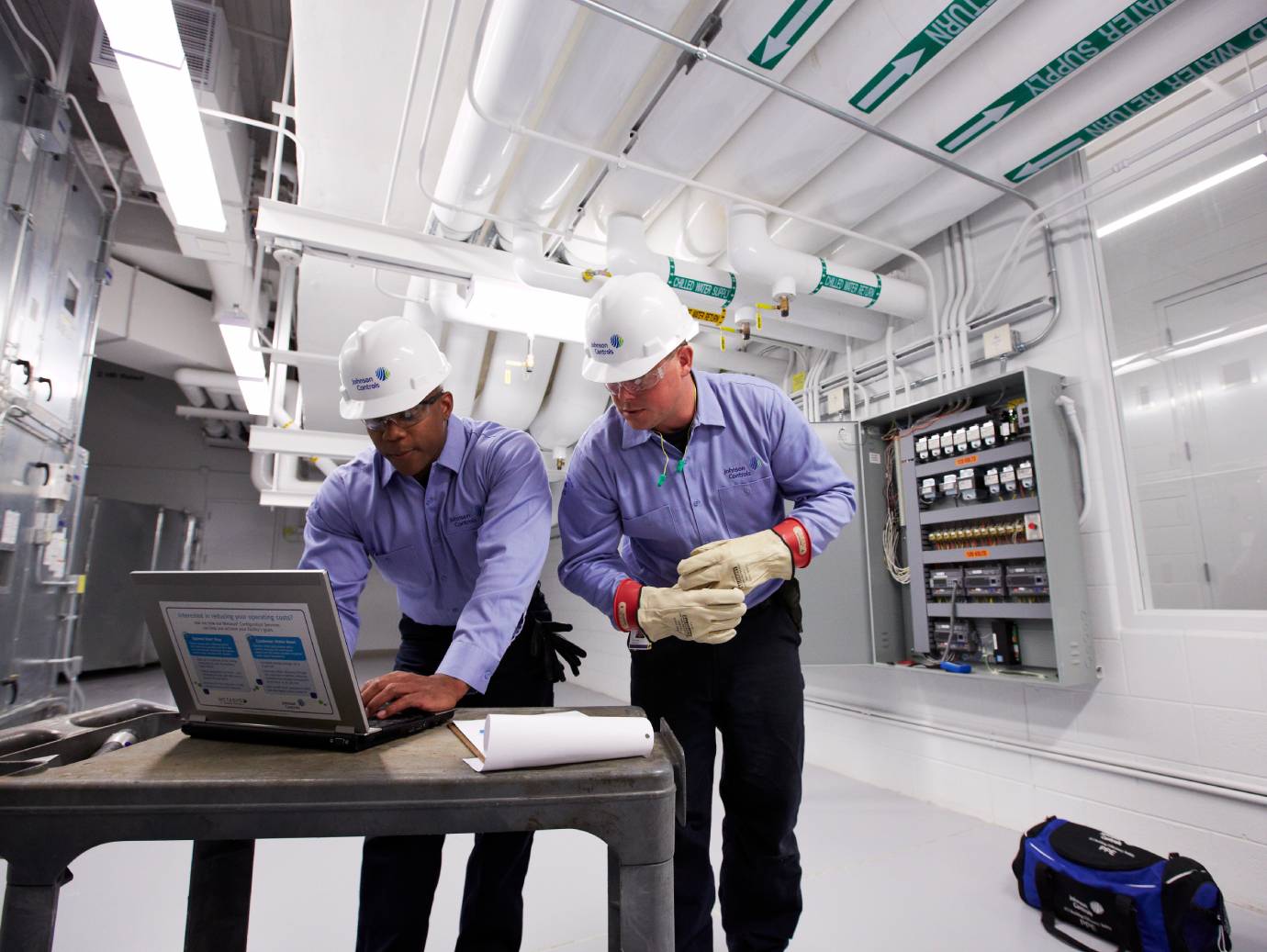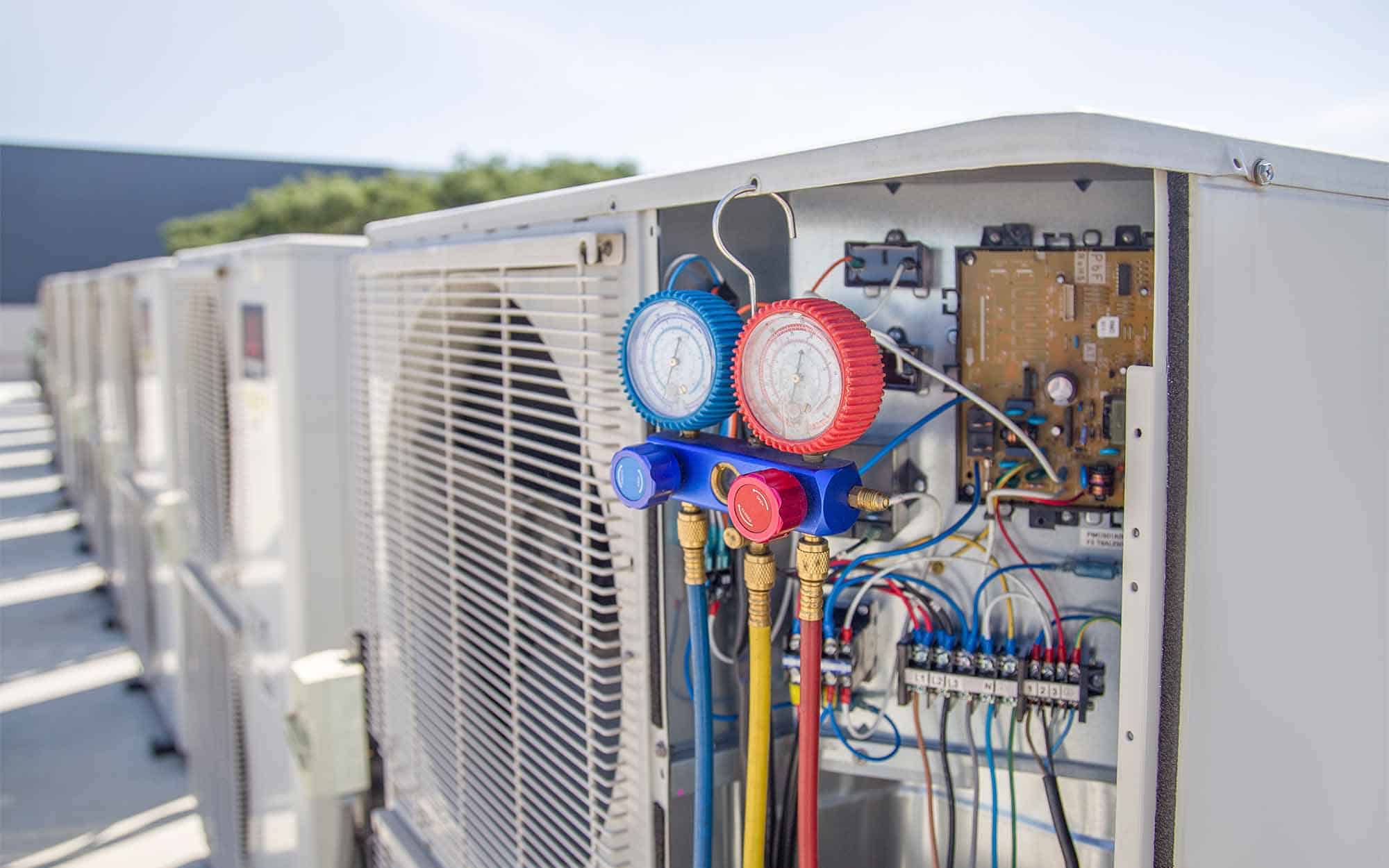Choosing In Between a Heatpump and Furnace: Key Considerations for Your HVAC Needs
When assessing heating options for cooling and heating needs, the decision in between a heatpump and a heater can be complicated. Each system supplies distinctive benefits customized to specific environments and energy effectiveness goals. Comprehending these distinctions is vital for making an educated option. Secret aspects such as setup expenses and environmental impact additionally make complex the selection process. Which option truly aligns with one's comfort and sustainability choices? The complying with areas will certainly check out these considerations carefully.
Understanding Heat Pumps: How They Work and Their Advantages
While numerous home owners think about various heating choices, comprehending how heatpump function and their benefits can considerably influence their choice. Warmth pumps operate by moving warm rather than creating it. In the winter, they extract warm from the outdoors air or ground and transfer it inside, while in the summer, they reverse this procedure, cooling the home by removing warm outside. This twin capability makes them functional for year-round climate control.One of the main advantages of heat pumps is their power performance. They use substantially less electricity contrasted to traditional heating unit, possibly causing lower utility costs (furnace replacement). Furthermore, heat pumps have a smaller carbon footprint, making them an ecologically friendly option. They also call for much less upkeep than traditional systems, adding to long-term price savings. Generally, understanding the auto mechanics and benefits of warmth pumps can aid homeowners make informed choices regarding their heating and cooling needs
Exploring Heating Systems: Types, Operation, and Advantages
Heaters come in various kinds, including gas, electric, and oil models, each with distinctive functional devices. Comprehending these distinctions is essential, as they affect performance and home heating efficiency. Furthermore, heaters use many advantages, such as consistent warm outcome and dependability in cooler environments.
Sorts of Heating systems
Home heating systems can vary significantly in style and procedure, with heaters being a preferred selection among homeowners. There are several kinds of heating systems, each utilizing different fuel resources and modern technologies. Gas heaters are typical, leveraging all-natural gas to generate warm efficiently. Electric heaters, on the various other hand, utilize electrical resistance to generate warmth, frequently favored for their uncomplicated installation. Oil furnaces, while less usual, are effective in locations with restricted gas gain access to (heat pump replacement ooltewah tn). Furthermore, condensing furnaces maximize power effectiveness by recording and reusing exhaust gases. Each kind operates via a system of heat exchangers and ductwork to disperse cozy air throughout a home. Comprehending the distinctions between these heater kinds is important for educated heating and cooling choices
Benefits of Heating systems
For property owners looking for reputable heat during chilly months, the benefits of heaters are considerable. Heaters provide constant home heating, guaranteeing also temperature levels throughout the home. They are particularly efficient in severe cool, usually outmatching heat pumps in freezing conditions. Various types, including gas, electrical, and oil heaters, supply flexibility to satisfy diverse needs and preferences.Furnaces likewise have a tendency to have reduced first installment prices contrasted to heatpump, making them a more easily accessible option for several. Their robust layout adds to a longer life expectancy, with several devices lasting over 15 years with correct maintenance. Furthermore, contemporary heating systems are usually geared up with advanced technology for improved efficiency, which can cause lowered energy costs. On the whole, heaters continue to be a dependable choice for reliable home heating.

Power Efficiency: Comparing Heat Pumps and Furnaces
When comparing energy performance between heatpump and heating systems, the Seasonal Energy Effectiveness Ratio (SEER) plays a crucial role in determining performance. In addition, a functional price evaluation exposes the long-lasting monetary implications of each system. Recognizing these factors can lead homeowners in making informed choices regarding their home heating services.
Seasonal Energy Performance Proportion
Power effectiveness plays a necessary function in the decision-making process in between warmth pumps and heaters, especially when thinking about the Seasonal Energy Performance Ratio (SEER) This metric measures the cooling performance of warm pumps over a whole cooling period, giving a standard method to assess performance. Higher SEER rankings suggest greater power efficiency, translating to lower power usage and reduced energy expenses. On the other hand, heaters are commonly assessed making use of the Annual Fuel Use Efficiency (AFUE) score, which reflects home heating efficiency. When comparing these 2 systems, house owners should focus on SEER ratings for heatpump, as they straight impact total energy financial savings and ecological sustainability. A thorough understanding of SEER can significantly affect the long-lasting satisfaction and cost-effectiveness of the selected cooling and heating service.
Functional Cost Analysis
Comprehending the functional prices connected with heatpump and heaters is vital for house owners reviewing their options. Warmth pumps typically provide greater power performance, transforming electrical energy into heat with marginal waste. This causes reduced monthly utility expenses, particularly in modest environments. Conversely, traditional furnaces, especially gas designs, may have lower upfront costs yet can sustain greater functional expenditures over time because of sustain costs and effectiveness ratings.Moreover, warmth pumps can function as both heating and cooling down systems, possibly lowering the demand for different heating and cooling units. While initial investments for warmth pumps might be greater, their lasting financial savings in energy performance can make them an extra cost-efficient selection for many homes. Careful evaluation of local power prices is necessary to establish the very best alternative.
Setup Costs: What to Anticipate for every Heating Unit
Installation expenses for heating unit can vary substantially between heat pumps and heaters, influencing homeowners' choices. Heatpump typically have greater ahead of time installment expenses, generally ranging from $3,500 to $8,000, depending upon the device dimension and complexity of installment. This includes the exterior system, indoor handling system, and essential ductwork adjustments. Conversely, furnaces have a tendency to have reduced first prices, averaging in between $2,500 and $6,000, which can be appealing for budget-conscious property owners. Installment costs can raise if extensive ductwork is required.Moreover, the option of gas type for furnaces-- natural gas, lp, or electrical-- can likewise affect installment prices. While heat pumps use power performance, their preliminary investment may deter some purchasers. Inevitably, reviewing installation costs together with long-lasting savings and effectiveness will certainly help house owners in making educated choices regarding their furnace.
Climate Considerations: Which System Carries Out Better in Your Area
How do environment problems affect the performance of furnace? The performance of heatpump and heaters can differ substantially relying on the local climate. In modest environments, heat pumps stand out by efficiently moving heat from the outside air, making them an energy-saving alternative. Nevertheless, their efficiency reduces in very cold temperature levels, where they may struggle to remove enough warm. On the other hand, heating systems, particularly gas models, provide dependable and regular warm regardless of outdoor conditions, making them preferable in cooler regions.In areas that experience milder winters, heatpump can operate properly year-round, supplying both cooling and heating. In comparison, regions with harsh winters months commonly gain from the toughness of furnaces. Eventually, recognizing the regional environment is important when making a decision in between a warm pump and a heater, as it directly influences their operational efficiency and total performance.
Upkeep Needs: Long-Term Treatment for Warmth Pumps vs. Furnaces
While both heatpump and heaters need routine maintenance to guarantee peak efficiency, their specific demands and treatment routines differ considerably. Furnaces typically need much less regular interest, with yearly evaluations being sufficient to look for gas leakages, clean filters, and evaluate overall functionality. Their less complex design frequently allows for simple repairs.In contrast, heatpump demand biannual upkeep due to their twin duty in cooling and heating. This includes cleansing coils, checking cooling agent levels, and guaranteeing that both the exterior and interior units work at their best. Additionally, warm pump upkeep commonly includes even more intricate parts, making continue reading this expert maintenance essential.Neglecting upkeep can cause decreased performance and increased energy prices for both systems. Eventually, homeowners need to consider these long-lasting treatment requirements when selecting in between a warm pump and a heater, as aggressive maintenance can expand the life expectancy and performance of either system significantly.
Environmental Impact: Selecting a Lasting Home Heating Option
The environmental impact of furnace is an essential assessment for house owners seeking lasting alternatives. Warmth pumps are normally much more energy-efficient than typical furnaces, as they transfer warm as opposed to produce it, greatly reducing carbon emissions. By utilizing sustainable energy sources, such as geothermal or air-source heatpump, homeowners can further minimize their ecological footprint.On the various other hand, gas furnaces discharge greenhouse gases and add to air contamination, though they typically give greater heat outcome. Improvements in technology have led to the development of high-efficiency heaters that lessen emissions.Ultimately, picking a home heating system includes considering effectiveness against ecological effect. House owners are motivated to review regional power sources and motivations for sustainable systems, making certain an option that straightens with both personal comfort and ecological obligation. The decision influences not only prompt comfort but likewise long-term sustainability and ecological health and wellness.
Regularly Asked Questions
How Much Time Do Heat Pumps and Furnaces Normally Last?
The lifespan of heatpump generally varies from 15 to twenty years, while furnaces can last between 15 to thirty years. Normal maintenance substantially influences their long life and performance in offering home heating services.
Can I Utilize a Warmth Pump in Incredibly Cold Climates?
Warmth pumps can operate in very chilly environments, but their efficiency decreases as temperatures decrease. In such conditions, supplementary home heating sources might be essential to maintain comfy indoor temperature levels and ensure peak efficiency.

What Is the Noise Level of Warm Pumps Versus Furnaces?
The noise he has a good point degrees of heatpump and furnaces vary substantially. Normally, heatpump run more quietly than standard furnaces, making them more effective for those conscious appear, while heaters might generate louder heat pump installation ooltewah tn operational noises throughout home heating cycles.
Are Heat Pumps Suitable for Both Heating and Cooling?
Warm pumps are undoubtedly ideal for both heating & cooling (ductless mini splits). They function by moving warmth, giving reliable temperature level control year-round, making them a functional option for home owners looking for an all-in-one HVAC solution
What Dimension Furnace Do I Required for My Home?
Figuring out the proper size heating system for a home calls for reviewing elements such as square footage, insulation quality, neighborhood climate, and the home's layout. Consulting a professional can assure an exact assessment and excellent convenience. Warmth pumps commonly supply higher energy effectiveness, converting electrical power right into heat with marginal waste. In modest climates, warmth pumps stand out by efficiently transferring warmth from the outside air, making them an energy-saving choice. On the other hand, heating systems, particularly gas models, give trusted and constant warmth regardless of outdoor problems, making them more suitable in cooler regions.In locations that experience milder winters months, heat pumps can run properly year-round, supplying both home heating and cooling. Heat pumps are usually much more energy-efficient than typical furnaces, as they move warm rather than create it, considerably reducing carbon discharges. By utilizing eco-friendly energy sources, such as geothermal or air-source warm pumps, home owners can even more lessen their eco-friendly footprint.On the various other hand, natural gas heating systems release greenhouse gases and add to air contamination, though they usually give greater heat output.
Comments on “Top Questions Answered About heat pump replacement ooltewah tn”